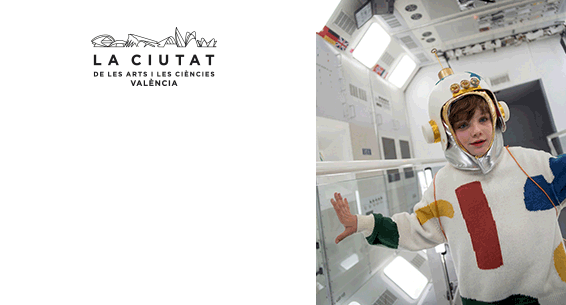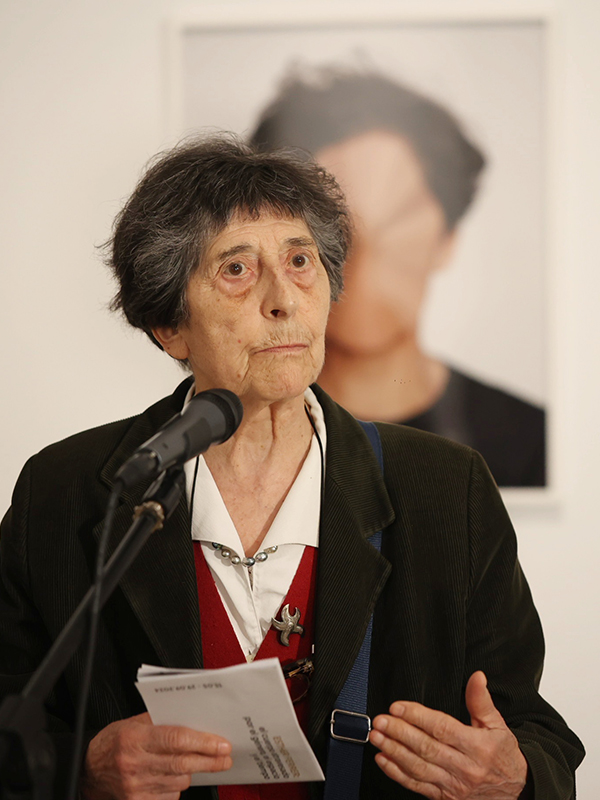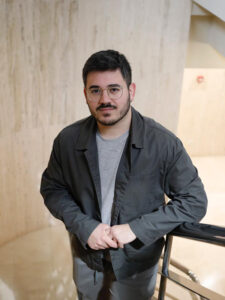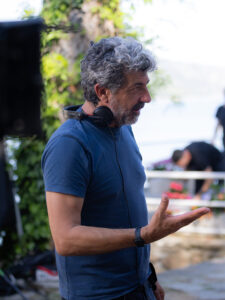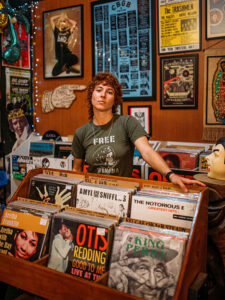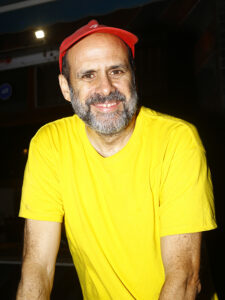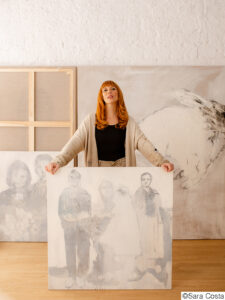Nobody in Spain in the sixties knew what action art was, but there was Esther Ferrer executing her performances in the midst of an atmosphere of incomprehension to become a pioneer of the genre in the country. His is an art rich in ideas but poor in materials., that is to say, who only uses his body when the idea to develop allows it. During the last years of Franco's regime, he launched his ZAJ concert to 60 you, a performance who tried to get as far away from the theater as possible, drinking from the experimental music of John Cage, where sixty voices of different sex, age and condition were directed like an orchestra. Each performer could recite the phrase that had been given to him for one minute., only once, or repeat it as many times as you want, varying the language, intonation, the rhythm, etc. Now, recognized and multi-awarded, to the 86 years, has presented his first solo exhibition in the Valencian Community, at the Center del Carmen, with recurring themes in his work such as repetition, chance, the presence (vital en performance), the time (the mark it leaves on the body) or space, that is to say, the thread of time, life, that journey that goes from nothing to nothing.
Now the performances are carried out within artistic spaces and enjoy recognition, but when you started they were made in the street. How did people react when you started making action art?? Why did you move to France and why have you never come back?
Not only on the street, They were made where they could, It depended on who organized it.. People reacted in many ways, Few knew the world of action and it surprised them and they reacted according to each person's personality., with humor, violently, with good will trying to participate, leaving quietly or protesting. When I returned to Spain in 72 I had the feeling that I couldn't stand the Franco regime anymore and I left, I didn't know then that definitely.
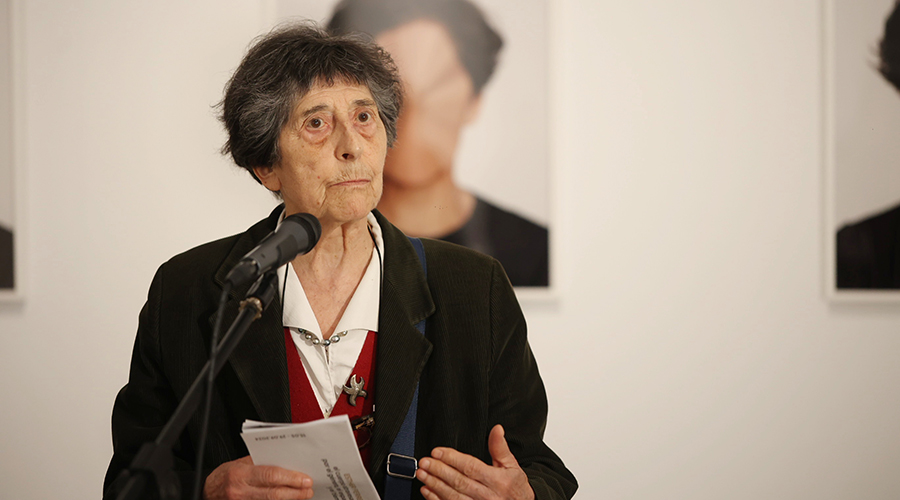
The ZAJ group tour was organized in 1973 experimental musician John Cage, known for his famous piece 4’33’’. He created random music where improvisation was key in the creation. What do you think he saw in the ZAJ group? To what extent did Cage influence your work??
I don't know what Cage saw, The only thing I know is that after seeing us at the meetings in Pamplona he told us: “Americans have to know this.”, "I'm going to organize a tour for you in the United States" and he organized it. What Cage has brought me is a change in my concept of what I believed was music., listening. Thanks to him I “learned” to “listen to the noises of this world” in a completely different way., I learned that everything can be music, that “it's just listening that stops and starts again”.
George Maciunas, leader of the Fluxus movement, He said his art should be simple, entertaining and unpretentious, and discuss trivial topics, without mastering techniques or trials. Do you agree with him?
Everyone has their definition of art, what Maciunas said, who I met in New York, it was good for him, I don't see why everyone has to agree on their “definition.”. in art, that I know , there are no “potatoes”, or better that there aren't any, or “dogmas”, it is not a religion, For me it is a space of freedom, where I do what I want and can, with a sense of responsibility that is what I impose on myself.
What do you enjoy most?, the process of preparing an action or the action itself?
What gives me the most satisfaction is the process, the search, the doubts and the reflection to which these force me. Besides, since I don't know how to do almost anything, I have to learn. I always say that for me art is a way of knowledge, I learn a lot by doing what I do, I have to learn, file, ask, try, etc. As Machado said, “Walker there is no path, "The path is made by walking". Also interesting are the encounters with those who are in it or cross it., I have learned thanks to them.
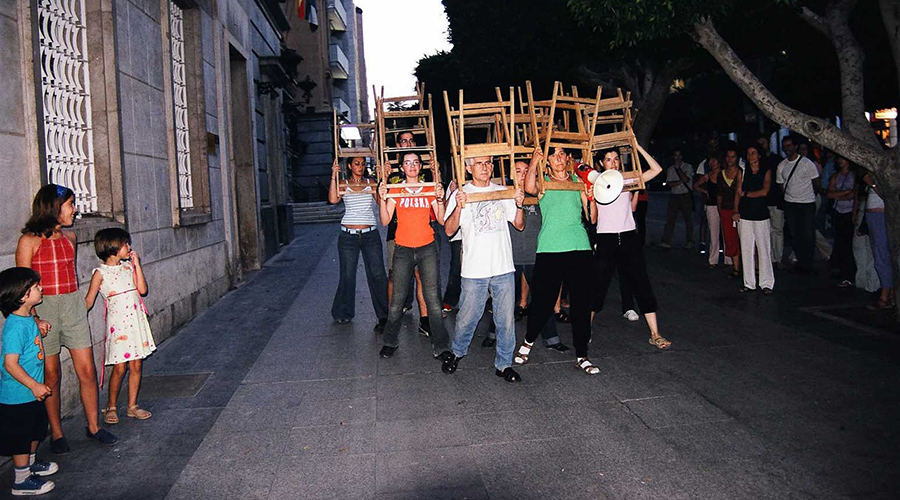
In the exhibition at the Center del Carme you ask yourself questions that the public can answer in post-its stuck on the wall. You usually look for the visitor's partition, but at the same time, you say not to change anything to gain the public's favor. Nothing for the public, but with the public?
Like I told you, if I do what I want and I can, I believe that the public can, if you want, do it too. I don't ask for anything, I propose questions and the possibility of answering them (even to reflect on something that perhaps I had never thought about), I don't force him to do anything, whether he answers or not, It's your problem, You have to decide for yourself if the proposition interests you..
You say you don't like to expose, why do you do it?
Preparing an exhibition takes a lot of time and during that time I can't do my work., that is to say, project other works, think about them, etc., and this overwhelms me. I present when the proposal and who proposes it interest me and if not, well no. I live off what I earn doing my job. Have 86 years, For many years I did different jobs to earn my living, without having to depend on anyone within the art world, I pay for what I do. I started making a living from my job a few years before I was selected for the Venice Biennale in the 99.
You go on stage with everything well thought out, but open to changes that may arise, almost waiting for them. The unpredictable, the idea of “let's see what happens”, Is it stimulating or does it make you dizzy?? Are all versions and interpretations of your performances valid??
Yeah, For me they are all valid, even the “bad” ones. The performance It's life that happens, what happens when I do an action, It is more important than what I had thought of doing and what is written in the previous score. When I present a stock, The fundamental thing for me is “being there” (Zen), being able to react how I consider I should react at that moment. As Cage told me, “the accident is part of the work”, not be worried about the “result”, but for the moment you live.
The curator of the exhibition, Margarita Aizpuru, talk about “hot conceptualism” to refer to your work, sensory and experiential. Do you feel identified with this definition??
Others always define you, I don't need to define myself and if Margarita has written that, undoubtedly has its reasons. I believe that the interpretation of a work is a dialogue between the viewer and the work, and the best thing the artist can do is disappear. In this case I would say, as I say in the case of my performances, that “all definitions are valid, including this one”.
Time is a determining factor in installation Self-portrait in time, where you confront two halves of your face from different periods of your life. Why are you interested in showing aging?? Is female aging viewed worse than male aging??
I'm not trying to show aging, What I'm trying to do is visually show the passage of time., What does aging actually involve?, but this for me is secondary. Anyway, many people who see this work consider it that way, and it seems very good to me, they tell me: “what courage to show your wrinkles”. Actually, It is true that an old woman's body is “intolerable” in the society in which we live and, For example, if I do my action today Intimate and personal [a performance in which Esther proposed to the participants the possibility of measuring parts of the body, one's own or that of others, dressed or naked], The reactions are very different from when I was thirty years old.. But, for me, this performance has always had a militant feminist character, young or old.
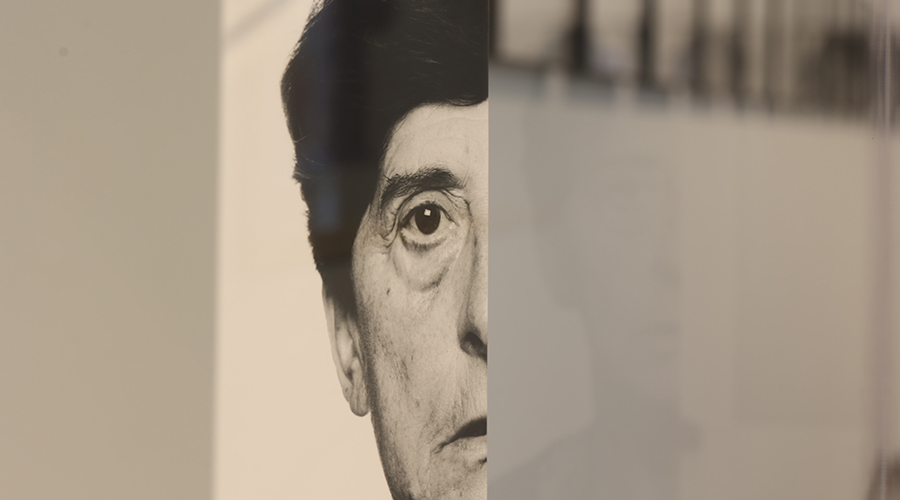
Nudity is a common element in your actions. I imagine that more than one viewer will have been scandalized in this sense.. Why is female nudity uncomfortable when it is not dictated by a man nor does it have the function of provoking male pleasure??
No, it is not usual, I undress when I consider I should do so. If you examine my actions you will see that there are very few in which I get naked. For millennia men have stripped us naked, they have used the woman's body, in art for example, depending on your “needs”, ghosts and others. One day we decided that “our body belongs to us” and that we use it as we decide., among other things, as support for our feminist struggle. That's all. What men can say, “exhibitionists”, provocative, etc.”, it's irrelevant, we don't even have time, I don't even want to think about what they think, besides, it doesn't matter to us.
When you were awarded the Velázquez Prize, your “radical proposals” were highlighted.. In what sense are your proposals radical??
I don't define them, my proposals are a consequence of my artistic interests, of the political-social circumstances and the commitments that I consider to be mine in the situation in which we live. With a lot of intention on my part, I would say that the only thing that interests me with my proposals, It is to make you reflect on this or that topic that seems important to me..
Capitalism ends up absorbing all cultural manifestations, no matter how marginal or oppositional they may be. Has it also happened with the performance?
Of course, but there are also artists who try to escape as best they can, it's difficult. If you live from your work and your gallery sells (I refuse to sell directly) that sold work enters the system, automatically.
At the presentation of the exhibition you said that you were not at all worried about the future of the performance…
And I can repeat it, the world of action evolves like everything in the universe, that “nothing is stable”, “everything is transformed”, For me it is evidence. Happily, the performance It does not escape the norm and evolves for better or worse, adapts to its time. Some want to “mummify” her., fix it, it's not my case. In its evolution, as in everything, there are good and bad reasons, and if one day it disappears, nothing happens, the emptiness I left, will be occupied by another form of creation.
“I try to understand everything I experience but I can't understand practically anything”. It's a phrase of yours. Do you understand the world you live in today? Do you like it?
It's not a question of whether I like the world or not., it is what it is, and I don't understand it, but I have never understood it. when I was a girl, many things that were completely “normal” for older people, They seemed strange to me, or nonsense, certain absurd obligations, certain incomprehensible social “rites”… Today I understand even less. I always wonder, Is this model of society so absurd, so unfair and so cruel it is the only possible?, Will the evolution of the animal-human species create another type of society? Sometimes I try to imagine this kind of society, I don't get it.


